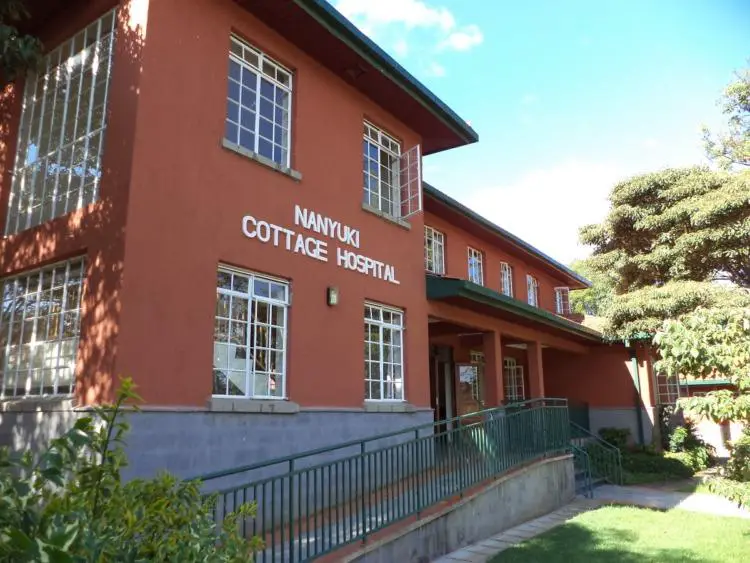- Kenya is one of the countries in Africa that have higher access to both on-grid and off-grid connections
- Currently, 70 per cent of Kenya’s installed electricity capacity comes from renewable energy sources
- The transition to fully renewable energy could further boost the population’s access to the national power grid
When you lose power supply at home you tend to think of the fridge, TV and other appliances. In hospitals, there is a lot of equipment and procedures that are affected by the erratic power supply.
Most medical machines that are dependent on electricity are life-saving, their interruption for just a few minutes may mean the loss of life.
Africa has a huge percentage of its health facility based in rural areas where power availability is not guaranteed. This has led to hospitals and health facilities exploring alternative sources of power, sometimes a little bit expensive than those connected to the national grid.
Read: Global fight against tobacco stalls despite millions dying each year
Kenya is one of the countries in Africa that have higher access to both on-grid and off-grid connections, though the tariffs are increasingly becoming high.
Currently, 70 per cent of Kenya’s installed electricity capacity comes from renewable energy sources, which is more than three times the global average.
The transition to fully renewable energy could further boost the population’s access to the national power grid and reduce manufacturing production costs.
Based on the erratic supply of power and the high power tariffs, medical facilities are exploring stable supply through private partnerships with renewable power suppliers.
Nanyuki Cottage Hospital (NCH) is one such facility that is taking a bold step to ensure reliable power supply and a reduction in their operational costs by partnering with Distributed Power Africa (DPA) on the rollout of a solar power solution at their hospital in Nanyuki.
When you lose power supply at home you tend to think of the fridge, TV and other appliances. In hospitals, there is a lot of equipment and procedures that are affected by the erratic power supply.
Distributed Power Africa (DPA) is an innovative African renewable energy company that has been aggressive in engaging commercial and industrial businesses to adopt hybrid clean energy solutions using lithium battery technology to improve energy security.
“One of our challenges has been ensuring reliable continuous day power, no power fluctuations, and peace of mind for our operations. We believe this solar system is a great first step towards this” commented Dr. Anup Das, Chief Executive Officer Nanyuki Cottage Hospital.
The Nanyuki Cottage Hospital is a not-for-profit institution providing health care services to the local community, located at the foot of Mt. Kenya.
Read: Bill & Melinda Gates Foundation commits US$120m to accelerate access to Covid-19 Drug
“When you lose power supply at home you tend to think of the fridge, TV and other appliances. In hospitals, there is a lot of equipment and procedures that are affected by the erratic power supply. When we made this decision we considered our patients and staff, especially those in Theatre, ICU, Dialysis, ICT Servers and we saw the need to invest in Solar energy to ensure efficiency,” he said.
The multi-speciality Tertiary Care Hospital has been in operation for the last 100 years in Mount Kenya Region with a rich medical history. It is known for caring for the elderly, and for offering high-quality healthcare at affordable prices.
“Solar energy is in line with our transformation to adopt modern healthcare technologies and software geared towards better healthcare provision. We are focussing on sustainable solutions starting with green energy to pioneer development in health care services across Kenya,” he added
The solution, currently under deployment by DPA is tailored to the hospital’s energy needs and designed to increase efficiencies. It will be grid-tied with photovoltaic (PV) of 80 kWp capacity and mounted on the rooftop.
This will see the facility save 30-40 per cent of their monthly electricity cost of approximately KES 550,000- this is through the use of solar power and reduced maintenance costs of all major hospital equipment affected by erratic power fluctuation.
The hospital sector, in operation 24 hours a day, 365 days a year, is one of the areas with high energy consumption and NCH joins a growing list of companies, universities, factories and hospitals in Kenya that have turned to solar PV grid-tied systems to supply power for self-consumption.
“Working with NCH is an exciting opportunity for DPA, as we can demonstrate once again that solar power is a sustainable ‘green’ strategy that can definitely improve efficiencies,” said Moncef Mettiji DPA CEO for East & West Africa.
The hospital receives patients from the entire Mount Kenya Region specifically from counties of Laikipia, Nyeri, Meru, Embu, Isiolo, Marsabit and Turkana.
Read: Co-operative Bank CEO named the best in Africa
